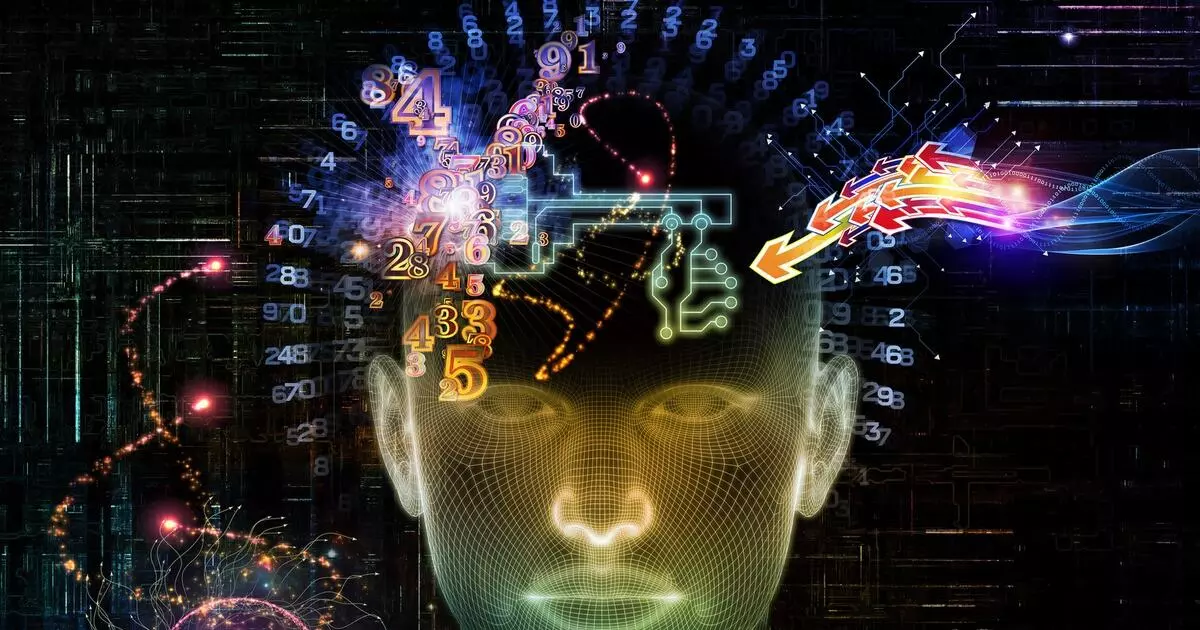TRENDING TAGS :
The Revolution of the Modern Age: Understanding Emotional Intelligence and Its Impact
Explore how emotional intelligence (EQ) impacts personal growth, relationships, and workplace success. Learn its key components, how it differs from IQ, and why it matters in today's world.
Intelligence (PC- Social Media)
In today’s world, success is no longer defined solely by academic knowledge or technical skills. Instead, it increasingly depends on emotional understanding, self-control, empathy, and social communication. These components make up what we now call Emotional Intelligence (EQ)—the new benchmark of excellence in a fast-paced and complex global environment.
EQ is not just the ability to know what we think, but more importantly, what we feel and what others feel. The ability to understand and respond appropriately to emotions—both our own and others’—has become a critical skill in modern personal and professional life. Whether it’s in relationships, leadership, or conflict resolution, emotional intelligence is the invisible force that transforms an ordinary person into someone extraordinary.
Definition of Emotional Intelligence
Emotional Intelligence refers to the ability to understand, manage, and respond to emotions—our own and those of others. It was popularized by American psychologist Daniel Goleman, who identified five core components:
1. Self-awareness
Recognizing and understanding your own emotions.
2. Self-regulation
Controlling impulses and reactions.
3. Motivation
Being driven by internal goals rather than external rewards.
4. Empathy
Understanding and respecting the feelings of others.
5. Social Skills
Building and maintaining relationships through effective communication.
Explaining the Components of EQ
The essence of EQ lies in one’s ability to analyze emotions, control negative feelings, remain dedicated to tasks, and build strong relationships. An emotionally intelligent person is skilled at navigating social dynamics, responding mindfully to challenges, and turning emotional insight into constructive action.
Such individuals are not only personally fulfilled but also perform better in professional and social environments. Emotional intelligence enhances decision-making, deepens human connection, and fosters collaboration and harmony.
How to Improve Emotional Intelligence
EQ is not innate—it is a learnable skill that can be cultivated with practice and reflection. Here are some effective ways to strengthen it:
Mindfulness and Self-Reflection
Spending time in meditation or quiet reflection helps you become more aware of your inner emotional world.
Pause Before Reacting
Developing the habit of thinking before responding helps manage emotional reactions more constructively.
Empathetic Listening
Listening not just with your ears but with your heart allows you to truly connect with others.
Accepting Feedback
Embracing constructive criticism helps you identify blind spots and grow emotionally.
Journaling
Writing down thoughts and feelings can provide clarity and help manage emotional complexity.
Through these small but consistent practices, anyone can grow into a more balanced, thoughtful, and emotionally mature person.
IQ vs. EQ – What’s the Real Difference?
While IQ (Intelligence Quotient) measures academic understanding and analytical ability, EQ reflects one’s emotional and social maturity. A person with high IQ but low EQ may struggle to manage anger or stress, which can affect leadership, teamwork, and decision-making.
On the other hand, a person with average IQ but high EQ can inspire others, maintain emotional balance during crises, and build strong relationships—qualities essential for true success today.
Importance of EQ in Professional Life
1. Leadership and Management
A great leader doesn’t just command but also understands the emotions of their team, inspires during tough times, and finds peaceful solutions to conflicts.
2. Teamwork and Collaboration
In diverse workplaces, empathy and emotional sensitivity are crucial for harmony and cooperation.
3. Customer Service and Public Interaction
The best service professionals not only hear customers—they feel their concerns and respond effectively.
4. Stress Management
Emotional balance helps manage corporate stress, leading to better mental health and higher productivity.
EQ’s Role in Personal Life
EQ extends beyond offices—it deeply affects relationships, lifestyle, and decision-making:
Harmonious Relationships
Emotionally intelligent people communicate well, resolve conflicts, and respect the emotions of loved ones.
Healthy Lifestyle
Emotional balance leads to inner peace, better sleep, reduced anxiety, and sharper decisions.
Empathetic Outlook
Understanding emotions helps us appreciate different perspectives, creating emotional and social balance in life.
Can Emotional Intelligence Be Learned?
Yes. EQ is not a fixed trait—it can be learned and developed. Practical exercises include:
Journaling
Writing down emotions helps in understanding and processing them.
Mindfulness
Staying present helps you recognize emotions in real time and respond wisely.
Receiving Feedback
Helps in self-improvement and behavioral adjustment.
Active Listening
Empathy starts with truly listening and understanding, not just hearing.
Cultural Relevance of EQ in India
In a culturally diverse country like India, where relationships and social interaction are paramount, EQ is even more vital. Ancient Indian spiritual and philosophical texts emphasize introspection, empathy, and ego control—core elements of emotional intelligence.
For instance, in the Bhagavad Gita, Krishna tells Arjuna,
“One who remains the same in joy and sorrow, gain and loss, honor and dishonor, is the true yogi.”
This reflects the ideal of emotional balance.
EQ and the New Generation
As today’s youth grow up immersed in technology, screens, and virtual lives, their emotional connectivity can weaken. Thus, EQ education in schools and homes is essential. Teaching emotional intelligence ensures that children grow into not just smart individuals—but good human beings, who are better equipped to contribute meaningfully to society.
In Conclusion
Emotional intelligence is not just a modern psychological trend—it is a fundamental human skill that determines how we think, feel, interact, and succeed. In a world driven by automation and AI, it is our emotional depth and intelligence that will keep us human.
Related Searches
emotional intelligence meaning, EQ vs IQ, emotional intelligence Daniel Goleman, how to improve EQ, emotional intelligence in workplace, importance of EQ in relationships, emotional intelligence in India, teaching EQ to kids, components of emotional intelligence, examples of emotional intelligence.


